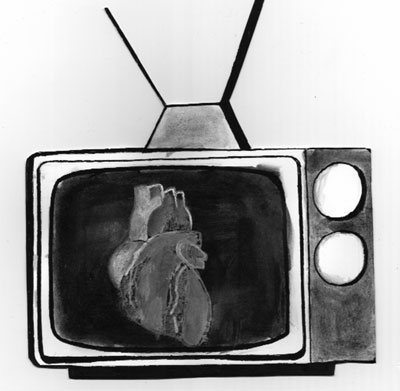All Nonfiction
- Bullying
- Books
- Academic
- Author Interviews
- Celebrity interviews
- College Articles
- College Essays
- Educator of the Year
- Heroes
- Interviews
- Memoir
- Personal Experience
- Sports
- Travel & Culture
All Opinions
- Bullying
- Current Events / Politics
- Discrimination
- Drugs / Alcohol / Smoking
- Entertainment / Celebrities
- Environment
- Love / Relationships
- Movies / Music / TV
- Pop Culture / Trends
- School / College
- Social Issues / Civics
- Spirituality / Religion
- Sports / Hobbies
All Hot Topics
- Bullying
- Community Service
- Environment
- Health
- Letters to the Editor
- Pride & Prejudice
- What Matters
- Back
Summer Guide
- Program Links
- Program Reviews
- Back
College Guide
- College Links
- College Reviews
- College Essays
- College Articles
- Back
Listening to the Enemy: What I Learned From Those I Disagree With
It is no lie that all of us have our own virtues in life. In fact, majority of today's society voices their opinion on just about every topic imaginable - from pizza to politics. What really intrigued me, however, was the way people address others' ideas. I've seen satire, ignorance, and even hate towards those of us who disagree with a certain subject.
So I made it my mission to record my thoughts in my head as I listened to people that I disagreed outright with. Instead of responding to their opinion, I simply sat beside them, mauling over their ideas. It was shocking how many times I wanted to stop listening to their side - and I realized that I, too, had my own concrete values with me before I even entered the conversation.
By the third or fourth conversation with people, I began to unlock a very vital piece of the puzzle. I began to transform my own beliefs into the speaker's. I tried to see their perspective on topics. Their words became my mind's T.V. screen - as if their story was on the Dr. Phil show. I noticed that in reality, it was not hard to empathize with people. I set aside my own ignorance and habits, and instead just listened.
I learned that when people are passionate, their eyes become larger. Their hand gestures become almost theatrical. I learned that when they believe their argument is weak, they'll say, almost apologetically, "I know I'm not an expert, but it's just how I feel." I learned that when they're angry about a topic, their breathing becomes heavier, and the speed of their speech increase dramatically.
Most shockingly, I learned that they wanted me to reply almost always - especially if what they had just said was a sensitive subject. "What do you think?" they'd ask. Frankly, I just shrugged most of the time - eager to see their response. Sometimes, the speaker would stop the conversation, as if they were afraid they had offended me. Sometimes, they'd continue on with their idea, even more excited than before. And sometimes, they would become quiet and reflective, as if they knew what I was doing.
"I don't know why the world is this way," One speaker said, after she had just talked to me about reproductive rights in America. "I think that all of us will always fight about this type of stuff."
I gained more by listening than I did objecting. Although I greatly value my speech, I caught myself saying, "I want to hear more of what this person has to say."
My hope is that more and more of society will choose to really listen during a conversation - at least once. Even now, when I have deeper conversations with people, I tend to wait until the speaker has spoken all of their peace. Even if it isn't a debate I agree with, it's extremely satisfying to see others voice their candid, passionate ideas. Sometimes, I can see that a lift has been taken off of the person I am talking to. In a strange way, discussing ideas to others - no matter how crazy they may seem - can be a truly freeing experience to not only the speaker, but to yourself as well.

Similar Articles
JOIN THE DISCUSSION
This article has 0 comments.
